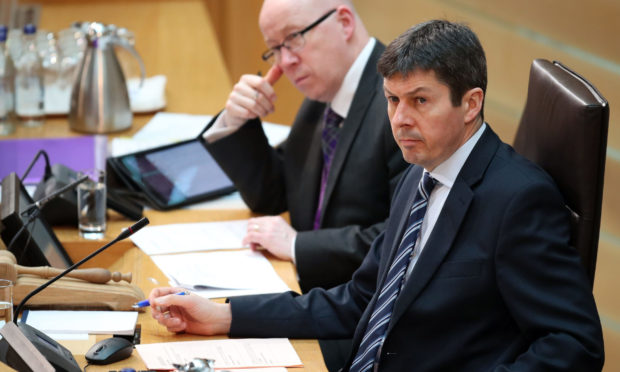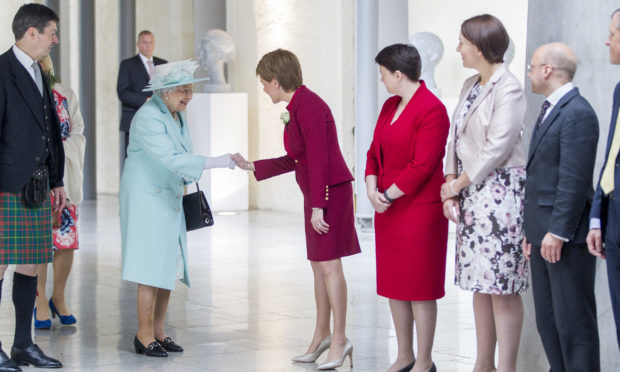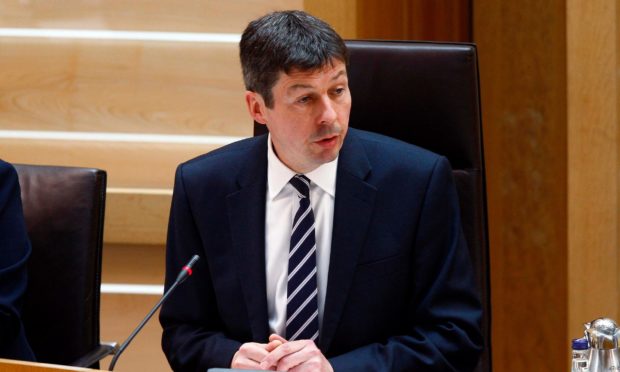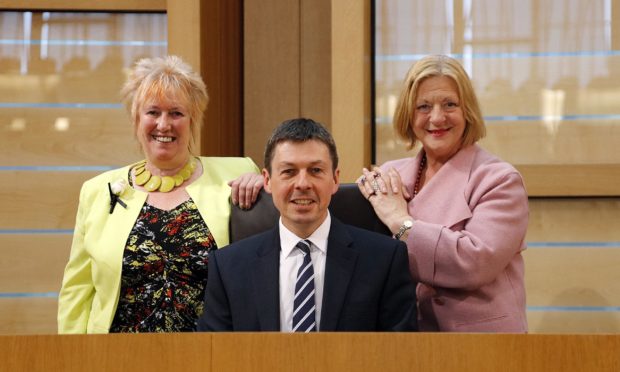Ken Macintosh fears a looming exodus of veteran MSPs will cement the domination of partisan politics in a parliament that was designed to be different.
The presiding officer, who announced last week that he would be among those not seeking re-election, said that Holyrood risked losing all “independence of thought”.
The architects of devolution raised hopes of a “new politics” in the 1990s, amid aspirations that the Scottish Parliament would offer a break from the divisive and confrontational ways of Westminster.
But while Mr Macintosh believed the parliament had generally surpassed expectations over the last two decades on a number of measures, he was concerned about its inability to retain MSPs who are unafraid not to toe the party line.
“One worry I do have about the parliament is that it is difficult for the parliament – and I’m not talking about myself – but it’s difficult for the parliament to hold on to some backbenchers of experience,” he said.
“That is a bit of a loss. When somebody has been an MSP, perhaps has been a minister, but they are no longer trying to get up the greasy pole, as it were, they are actually in a very good position to offer so much to the parliament.
“Experienced parliamentarians, who have been in office, but who are no longer so ambitious that they do what they are told.
“It’s actually very, very difficult to hold on to these people in the parliament.”
About a fifth of Scotland’s MSPs have announced plans to quit at next year’s election, including several who have sat in the parliament since it was re-established in 1999, such as Mr Macintosh.
Sometimes the parties absolutely dominate, to the exclusion of independent thought, and that remains a dilemma for the parliament.”
Former ministers Alex Neil, Stewart Stevenson, Maureen Watt, Bruce Crawford, Iain Gray and Mark McDonald are among those departing, not to mention four serving Cabinet secretaries.
Mr Macintosh said the issue had been considered as part of the Commission on Parliamentary Reform in Scotland, but that it is still to be resolved.
Holyrood ‘votes along party lines’
“It’s difficult to know the reason, but I do worry sometimes, because with changes like that you lose institutional memory, you lose some independence of thought,” he said.
“The one thing that the parliament offered at the beginning was a breakaway from what was described then as overly-tribal or divisive party politics, and it is something we have struggled with.
“Because people vote along party lines, and that’s fine, we should always represent that, but sometimes the parties absolutely dominate, to the exclusion of independent thought, and that remains a dilemma for the parliament.”
Despite these concerns, Mr Macintosh believes Scotland is a nation that has been transformed in the 21st Century, in part due to the work of the Scottish Parliament.
“I was a member of the Labour Party from a young age, but I stood for parliament because I believed in the Scottish Parliament, I so believed in the whole devolution project,” he said.
“This idea was that we were going to offer a new way of doing politics, a more collegiate approach, more accessible, more transparent, more participative, not just representative.
“And that is very much what attracted me to put my name forward, and I think in the early years it’s easy to forget how worried we were, how anxious we were, about how accepted the parliament would be.
“I mean, it has always had its critics, but it actually very quickly became a very central part of our lives in Scotland.”
He highlighted early “landmark Bills” that “changed the nature of Scotland”, such as the Land Reform Act, the equalities legislation, and the smoking ban.
“Scotland became a much more progressive country, and it reflected the country we wanted to be – a much more self-confident country, taking control of our own health, asserting ourselves in a very modern way,” he said.
“Scotland is really quite a different country than the one I was brought up in now.
“Devolution is both a reflection of that, we are becoming a progressive country and devolution reflects that, but also it is the engine for it. It’s both.”
Mr Macintosh, who lives with Claire and their six children in Busby, was born in Inverness and went to primary school in Portree, then Oban, before moving to the Royal High School in Edinburgh.
His Skye-born father, Farquhar Macintosh, served as head teacher at Portree High and Oban High, as well as chairman of the Scottish Examination Board, and was a key figure of in the establishment of Sabhal Mòr Ostaig college on Skye.
I used to always think of myself as a Highlander but now I think of myself as somebody with a Highland background, or a Highland heritage.”
The MSP confirmed that it “crossed my mind early on” that he might represent a Highland seat, although he was also keen not to “over-romanticise” life in the north.
“I used to always think of myself as a Highlander but now I think of myself as somebody with a Highland background, or a Highland heritage,” he said. “Because it feels a bit unfair to people living in the Highlands now to claim myself as a Highlander.
“But yes, I am very proud of it, and I think it shapes your values in so many ways.
“I don’t know what I would call it, but I’ve always thought there is an innocence and naivety, in a nice way.
“I still associate urban life with a sort of cynicism attached to it, and there is a hope and an optimism, which comes from being brought up in a small town or a small village, that I’ve always valued.”
Bids for leadership of Scottish Labour
Mr Macintosh graduated with an MA in history from Edinburgh University in 1984, before working as a television producer for BBC News, including Breakfast with Frost and the Nine o’clock News.
He was elected in 1999 to represent the constituency of Eastwood, just south of Glasgow, and held the seat at the 2003, 2007 and 2011 elections.
“Each different election has created a different character for the parliament,” said Mr Macintosh, who said the move to a minority government in 2007 was the “most significant change of all”, and a “real triumph” that the SNP made it work.
In 2011, and again in 2015, Mr Macintosh ran for the Scottish Labour leadership, losing out to Johann Lamont and Kezia Dugdale, respectively.
He was returned as an MSP for the West Scotland region in 2016, before being elected as the Scottish Parliament’s fifth presiding officer.
He said he “always assumed” the reason he was chosen was because he “never hated anybody from the other parties, anyway”.
With several months still to serve in the politically-neutral post of presiding officer, Mr Macintosh would not be drawn on Scottish Labour’s decline.
However, on his own leadership bids, he said: “I can tell you honestly, I do not regret anything in the past.
“I mean, genuinely, so many frustrations and failures, if you know what I mean, political failures, things that don’t go your way. But no regrets at all.
“I tried what I tried to do, and I ended up as presiding officer, through which I have hopefully been able to make a difference.”
Mr Macintosh said he would “genuinely struggle to think of a lowlight” during his time as presiding officer, and laughed as he recalled his Carpool Karaoke voter registration drive, or the giggles that followed his threat last year that he would “have to cut off members” if exchanges between MSPs did not accelerate.
Presiding Officer Ken Macintosh warns MSPs that if exchanges at #fmqs don’t move more quickly, “I’ll have to cut off members”.
Quite a threat…
— Philip Sim (@BBCPhilipSim) March 14, 2019
While he will not seek re-election next year, the presiding officer said he had “no intention of retiring” and that he would “hope to still make a contribution to public life” in future, although it would not be in party politics.
Until May, however, he must still oversee parliamentary proceedings as MSPs grapple with the next phase of Brexit, fresh questions over Scotland’s constitutional future, the Alex Salmond inquiries, and the nation’s response to the pandemic.
“I’ll be honest with you, I’ve got a lot of work ahead of me,” he said.




